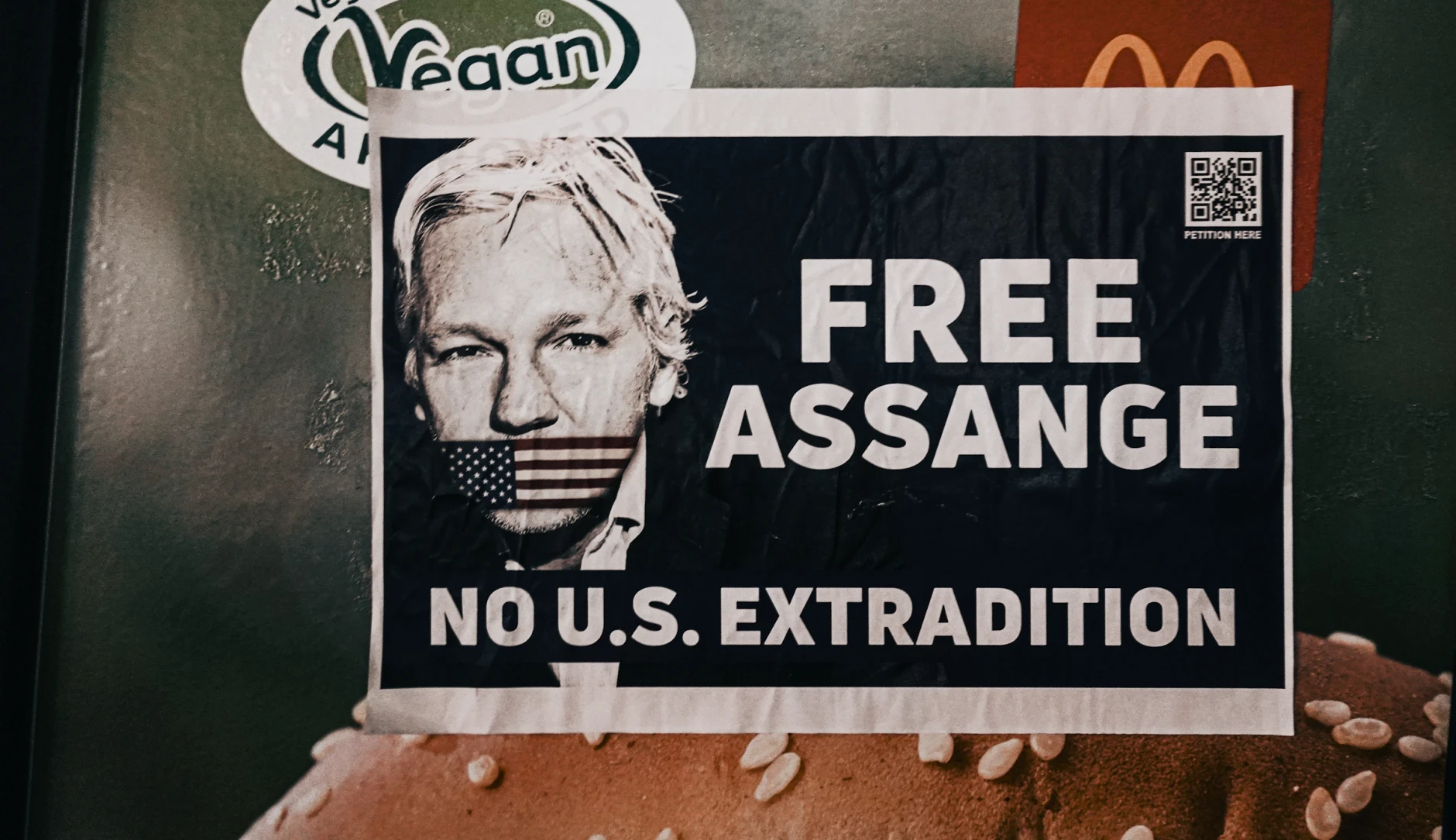The Release of Julian Assange: A Call to Defend Press Freedom and Strengthen Democracy
Julian Assange's release highlights the tension between national security and press freedom. Volt urges the protection of journalistic integrity and enhanced whistleblower protections to preserve democracy.

Julian Assange’s release from imprisonment has reignited significant debate about press freedom and the right of citizens to information. The case exemplifies a broader issue, where punitive actions against journalists or activists undermine democratic principles. Assange’s activities, though controversial, aligned closely with those of traditional journalism by exposing information that the public has a right to know.
Assange, of course, is a controversial figure himself; accusations of sexual assault in Sweden and claims that his leaks may have put the lives of intelligence agents at risk continue to surround him. However, the US government’s handling of his case poses a fundamental question for democracies: is it more dangerous for individuals like Assange to inspire others, or for the press to be silenced through fear and legal consequences?
One of the key roles of civil society is to hold those in power accountable. If a leader behaves badly and someone exposes it, the situation does not improve when the leader punishes the messenger. However, when journalists and human rights defenders are punished for doing their job, it undermines the democratic state.
Julian Assange might be considered a hacktivist more than a journalist, as he allowed people to leak information through his platform, WikiLeaks. But in doing so, he performed work similar to that of many journalists. By providing a secure outlet for whistleblowers, Assange and WikiLeaks played a pivotal role in exposing significant global issues such as corruption, war crimes, and human rights violations. Wikileaks published classified documents, including the Iraq and Afghanistan war logs, the Guantanamo Bay detainee files, and the US diplomatic cables, which revealed government misconduct and abuses of power.
The deal that led to his release earlier this month after more than five years in Britain’s Belmarsh Prison required him to submit a guilty plea, something that has left many journalists uneasy. If the US administration had simply wanted to drop the case, they could have done so without demanding such a plea in return. The decision raises a crucial question for the US and all contemporary democracies. What is the bigger moral hazard - that without Assange being forced to admit to espionage, others might follow his example, or that few journalists will have the courage to endure his ordeal to reveal what their governments are hiding?
A democratic society must uphold the principle that citizens have the right to access information necessary for informed decision-making. Ensuring the protection of journalists and whistleblowers is crucial to maintaining transparency and accountability within government actions.
Volt envisions a future where press freedom is vigorously defended, and any attempts to suppress it are met with unified resistance. To achieve this vision, we propose several measures to safeguard press freedom and reinforce democratic integrity:
Legal protections for journalists and whistleblowers: Establish robust legal frameworks to protect journalists and whistleblowers from retaliation, ensuring their right to report on matters of public interest without fear. This includes enhancing the Whistleblower Directive (EU) 2019/1937 for more comprehensive protections.
Anti-SLAPP legislation: Support the adoption and strengthening of anti-SLAPP (Strategic Lawsuit Against Public Participation) laws to prevent abusive lawsuits aimed at journalists and human rights defenders. Ensure these laws protect individuals and organisations across a broad spectrum of rights, including environmental, gender, LGBTQ+, disability, ethnic minority, labour, and religious freedoms.
Transparent government practices: Promote transparency in government actions and decisions, limiting the use of national security as a blanket justification for secrecy.
Public awareness and education: Enhance public awareness about the importance of press freedom and the right to information through education and media campaigns.
Volt will advocate for these measures at both national and European levels, collaborating with like-minded organisations and policymakers to draft and propose legislation. The implementation of these initiatives aims to create a more transparent and accountable political environment, thus reinforcing the democratic fabric of society.
The essence of democracy is that citizens have the right to access information to make well-informed choices. The right to information is not only a human right, but an essential tool that empowers citizens to demand accountability from their governments, participate in public life, and fight corruption through knowledge. Democracy should serve its people. When information is hidden from the people it is meant to serve, democracy itself is undermined.
The case of Julian Assange underlines the critical need to protect journalistic integrity and press freedom. Volt is committed to asserting these values, ensuring that democracies remain open, transparent, and responsive to the needs of their citizens. Through joint effort and collective action, it is possible to uphold the fundamental principles that define a true democracy.
Opinion Article by Lukasz Zsibrita